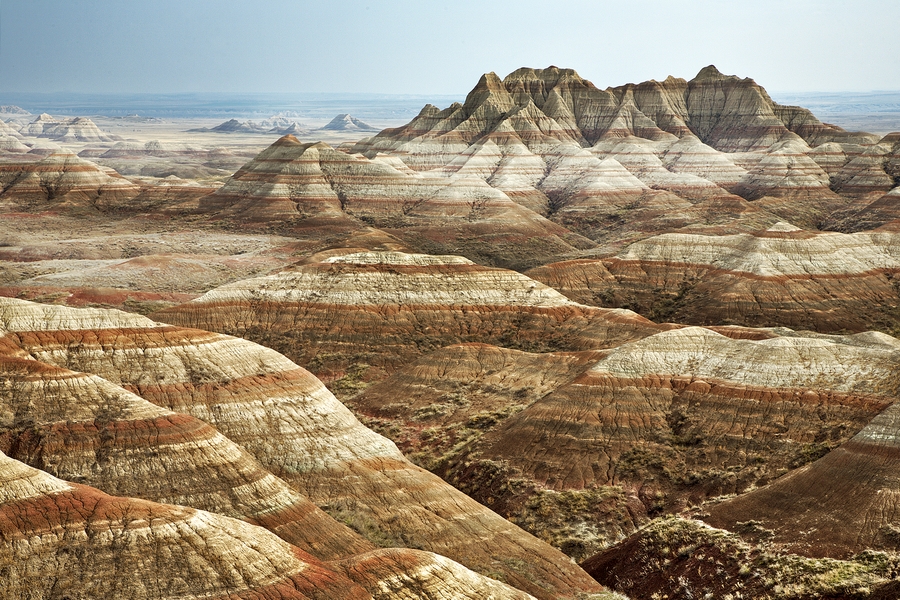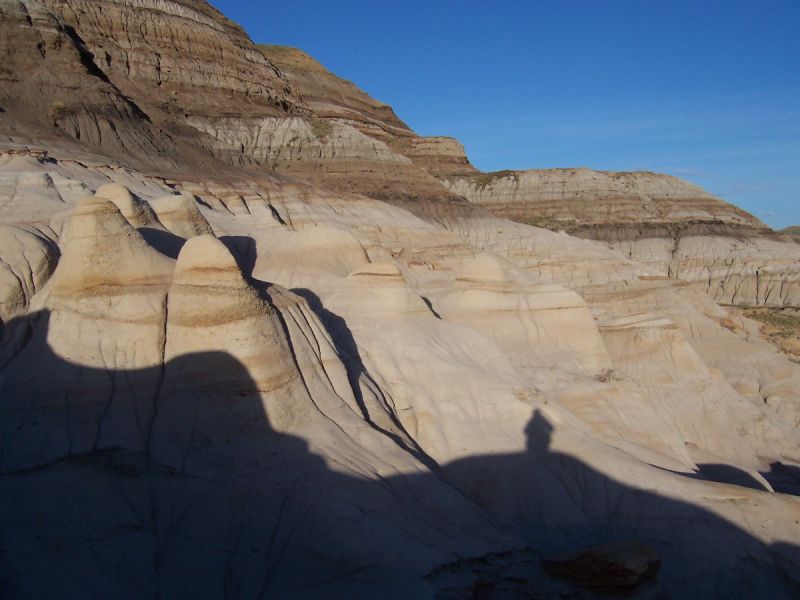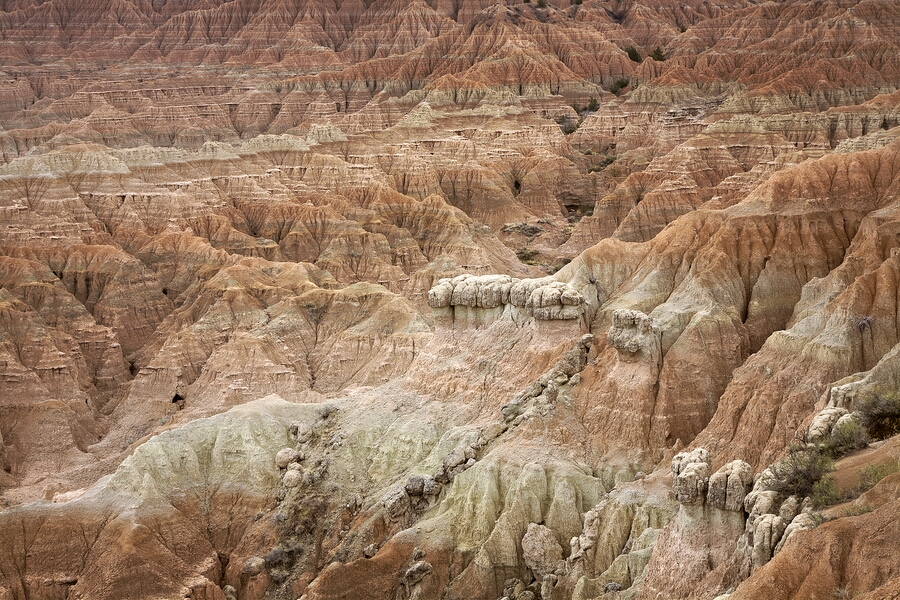.

Badlands National Park, South Dakota: photo by Alan D. Wilson, 2010
Above these Grand Staircases

Chinle Badlands at Grand Staircase-Escalante National Monument, Utah: photo by US Bureau of Land Management, 2004
under these distant skies

Badlands National Park, South Dakota: photo by Jsoo1, 2006
beyond our seeing or knowing

Badlands National Park, in southwest South Dakota: photo by Carol M. Highsmith, 2009

Badlands National Park, in southwest South Dakota: photo by Carol M. Highsmith, 2009
Time is frozen

Badlands near Drumheller, Alberta: photo by Chensiyuan, 2006
Whose foot prints are these?

Red Shirt Table, near Hermosa, South Dakota: photo by Alan D. Wilson, April 2010
I know I am who I am

Horsethief Canyon, close to Drumheller, Alberta: photo by John Johnson, 2007
but not who it is

Göreme, Cappadocia: photo by Carsten Dörre, 2006
who is going where I am going

Las Médulas, Nueva Léon, Spain: photo by Rafael Ibanez Fernandez, 2005
This post dedicated to Julia



8 comments:
I specially love these kind of landscapes. Perhaps because they ask me similar questions.
Ah, Julia, I was too shy to dedicate this post to you... but now that you have arrived for it, I have made it yours.
It would be stretching things to call this a translation, but it may be said to be a distant relation (very poor cousin, late to the family reunion) to Si quiero por las estrellas: Luis de Góngora y Azote (1561-1627). For the original, magnificently interpreted in contemporary photography, see:
Meliora Latent: Lo Implacable.
Yes, Julia, these landscapes have a mysterious fascination for me too.
A car trip through the Dakota Badlands in 1978 still haunts the memory like a trip to the moon.
Oh, Tom, thank you very much!
(I must say this in Spanish, you know my English is not good enough):
Debo agradecerte, además, porque tu post me hizo descubrir algo que no había pensado ¿por qué me fascinan tanto esos paisajes? Ahora creo que es porque más que ningún otro, estos paisajes son testimonio del paso del tiempo y de la paradoja entre la permanencia y la belleza de la "destrucción" (a erosión del agua y el viento destruyen, pero lo que queda es bellísimo). Estos lugares inmensos y tan marcados por el tiempo nos hacen sentir pequeños, pero también parte de todo el proceso, al menos como espectadores conscientes y racionales.
This is a great gift and amazing to return home to. For the last several days we have had a young exchange student from Cambridge, England staying with us. Today's diversions included a trip to Philadephia's Franklin Institute, our science museum, where (among other great things) we watched a remarkable film about the Hubble Telescope. The film covered both Hubble discoveries and the work performed by NASA astronauts to repair it. The outer space and earth beauties displayed in the movie were astonishing, naturally, and remind me of this.
Julia,
Agua, viento, "los elementos" ... estos son los "mecánicos grosera" (como se dice "rude mechanicals," como en Shakespeare?)" del Tiempo, que hacen su trabajo y hacerlo visible a nosotros en estos paisajes que prohíbe y descarnada. Y como te dije hace un rato en Meliora Latent, Julia, que parece que estamos de acuerdo en que el sentido del tiempo que huyen de nosotros es el que realmente el sentimiento trágico. Reconociendo que son cada uno, pero una parte muy pequeña del proceso, o quizás simplemente un espectador del proceso, tal vez no se trata de los motivos de la gran celebración o euforia. Pero siempre hay algo bello en reconocer y aceptar la verdad.
(And please do forgive my makeshift attempts at Spanish...!)
Curtis,
It's always fascinating to consider the thought of what might be seen and who might be doing the seeing, were the Hubble Telescope view to one day be be mysteriously inverted, so that the Out There might be Looking In on us.
I suppose that to a visitor from Outer Space the Badlands might not look so bad. Indeed, that visitor might just take one look and say to it/her/himself, "hmm, feels almost like home..."
Sí, estamos de acuerdo. Aceptar esa verdad del tiempo que huye es un dolor y una belleza melancólica al mismo tiempo.
Pehaps I can write you in Spanish and you, in English. So we won't have to apologize.
Bueno, no me importa pedir disculpas. Estoy seguro de que siempre tienen muchas cosas acerca de qué pedir disculpas. Para pedir disculpas por mi mal español es el menor de estas disculpas necesarias muchas.
Y mientras que perder el tiempo diciendo estas cosas, el tiempo es más que vuelan lejos de nosotros ... sin excusas o disculpas.
(You, meanwhile should never have to apologize for anything.)
without rain
the desert reveals
an absent presence
with rain
particular
presences arrive
Post a Comment